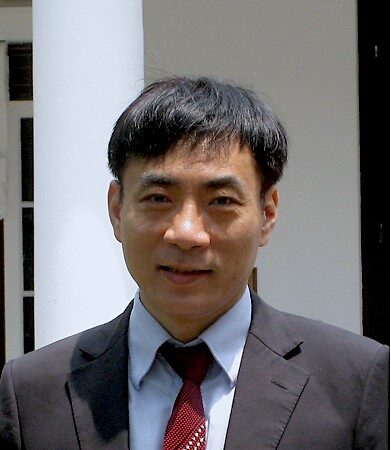[Seminar] "Emergent collective oscillations in dense adaptive cell populations" by Dr. Lei-Han Tang

Date
Location
Description
ABSTRACT
Collective oscillations are commonly observed in nature for cell populations with a shared “signal”, i.e., chemical molecules or physical features of the environment. While these phenomena play an important role in coordinating social behaviors such as migration and pattern formation, counter examples also exist where their benefits remain mysterious and even incur a functional cost. To understand the origin of this phenomenon, we develop a general theory and show that collective oscillations emerge when individual cells exhibit adaptive responses to the environment. Adaptation is a ubiquitous phenomenon that endows cells with higher sensitivity and robustness in a fluctuating environment. Our theory is supported by several experimental systems and suggests that non-functional oscillations may emerge as a consequence of the efforts to improve cellular adaptation.
BIOGRAPHY
Dr. Tang completed his PhD in statistical physics at the Carnegie Mellon University in 1987. He did postdoctoral work on quasicrystals, growing surfaces, and other nonequilibrium and disordered systems at various US and German institutions including Texas A&M University, the Institute for Solid State Science at KFA Jülich and the Institute for Theoretical Physics at the University of Cologne. He was appointed Lecturer at the Imperial College of Science, Technology and Medicine in 1996 and subsequently joined the Physics Department at the Hong Kong Baptist University as Associate Professor and promoted to Professor in 2005. He joined the Beijing Computational Science Research Center in 2010 as the head of the Complex Systems Laboratory. He has also held visiting appointments at UCSF, Peking University, Sun Yat-Sen University, Zhejiang University and the University of Science and Technology of China.
Dr. Tang’s research combines analytical and computational approaches to explore the effect of equilibrium and nonequilibrium fluctuations on the stability of ordered structures in various physical and biophysical contexts, in particular the energetics and dynamics of defects that disrupt ordering. In recent years, he has collaborated with experimentalists on the development of quantitative tools to analyze and integrate biological data and information.
Subscribe to the OIST Calendar: Right-click to download, then open in your calendar application.



